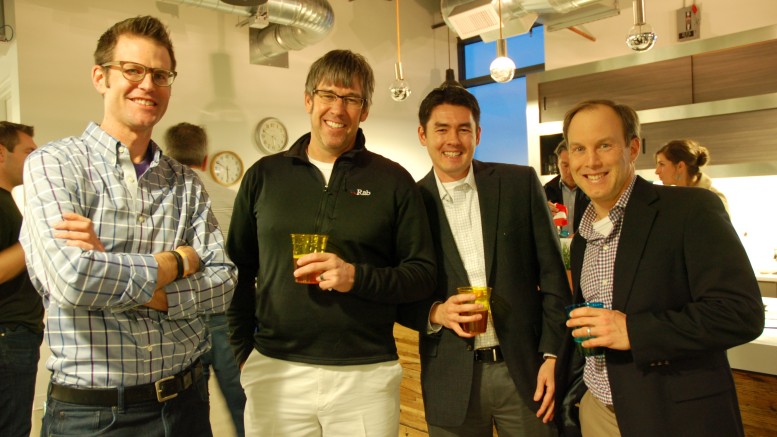DENVER – “Healthcare startups are hard,” said Vic Gatto, the founder and CEO of Jumpstart Foundry, a Nashville based innovation fund. “And if you decide to do healthcare startups in Middle America, where there isn’t any capital, that’s not just hard – that’s crazy.”
Gatto was speaking to a gathering of digital health entrepreneurs at Galvanize’s Platte River co-working space in downtown Denver. The former venture capitalist had come to the Mile-High City as part of Jumpstart Foundry’s City Tour.
“There are really passionate people doing great work here, but there’s no money,” Vic continued. “That’s a really good combination for me as a seed investor.”
Jumpstart Foundry’s City Tour had started in North Carolina’s Research Triangle, and would continue on to Chicago and Minneapolis, before ending in New Orleans in March. The tour was billed as an opportunity to discuss “the challenges that innovators face, and ways that startups can overcome.”
After stating that his organization planned to invest in twenty healthcare startups in 2016, Gatto explained how Jumpstart Foundry’s innovation fund operated.
“It’s a twelve-month process. We invest $150,000 and take 7.5% ownership. That’s a 2 million dollar valuation. Then we spend a year sitting side by side with you, helping you validate the business model, build the product, go to market, scale, get customers, and raise capital. A year later, you have your A round, and you’re off and running.”
According to Gatto, companies selected by Jumpstart Foundry would only have to visit Nashville for a few weeks of training and to make sales calls. Several members of the audience found the model attractive.
“It’d be great to have a source of funding close by, so that people like me wouldn’t have to sell themselves to the markets in San Francisco, New York, or Boston,” admitted Kevin Krauth, the CEO of Orderly Health.
“I think it’s a perfect follow-on for what many accelerators are doing because it helps fill the gap between traditional seed-stage funding and getting to a Series A,” explained Tom Base, the managing director of the Boulder-based Boomtown Health-Tech Accelerator.
Near the end of his presentation, Gatto mentioned a spin-off of Jumpstart Foundry known as Health:Further. He described Health:Further as a platform intended to educate established healthcare organizations about current innovations through annual summits, quarterly gatherings, and analysis reports.
“It also allows us to collate the inside information about what they want to invest in, what’s next for them, and then we feed that to you and it sort of informs the product development road map.”
As part of the massive Nashville healthcare cluster, Jumpstart Foundry has access to a variety of major healthcare organizations like Hospital Corporation of America (HCA).
“Jumpstart regularly polls executives there to figure out the greatest needs and problems to solve, in hopes of finding companies or entrepreneurs equipped to solve them. In return, those organizations agree to serve as pilot customers,” Laura Baverman wrote in her article on Jumpstart Foundry’s visit to the Research Triangle.
But a recent piece by Beth Kutscher in Modern Healthcare framed this relationship in somewhat different terms.
“Instead of getting pitched by entrepreneurs to fund the projects they want to work on, Jumpstart is taking pitches from would-be clients like HCA, Walgreens and the Blues and then matching them with the developers that can turn those ideas into reality.”
If Kutscher’s description of Jumpstart Foundry’s relationship with the major healthcare organizations of the Nashville cluster is accurate, then it appears that the innovation fund has achieved an elegant solution to Middle America’s lack of startup funding. By scouting for startups that match the “qualified ideas of its healthcare industry partners,” Jumpstart Foundry can increase the odds that the companies in its portfolio receive the investments they need to become successful businesses.
But the innovation fund’s approach leaves one nagging question. What happens when established organizations get to dictate the course of innovation in healthcare?
Like the coverage that CyberMed News provides? Follow us on Twitter, LinkedIn, and Facebook to make sure you keep up to date on the most recent developments in Colorado’s digital health community.





Be the first to comment on "Jumpstart Foundry’s Elegant Solution to Middle America’s Funding Problem"